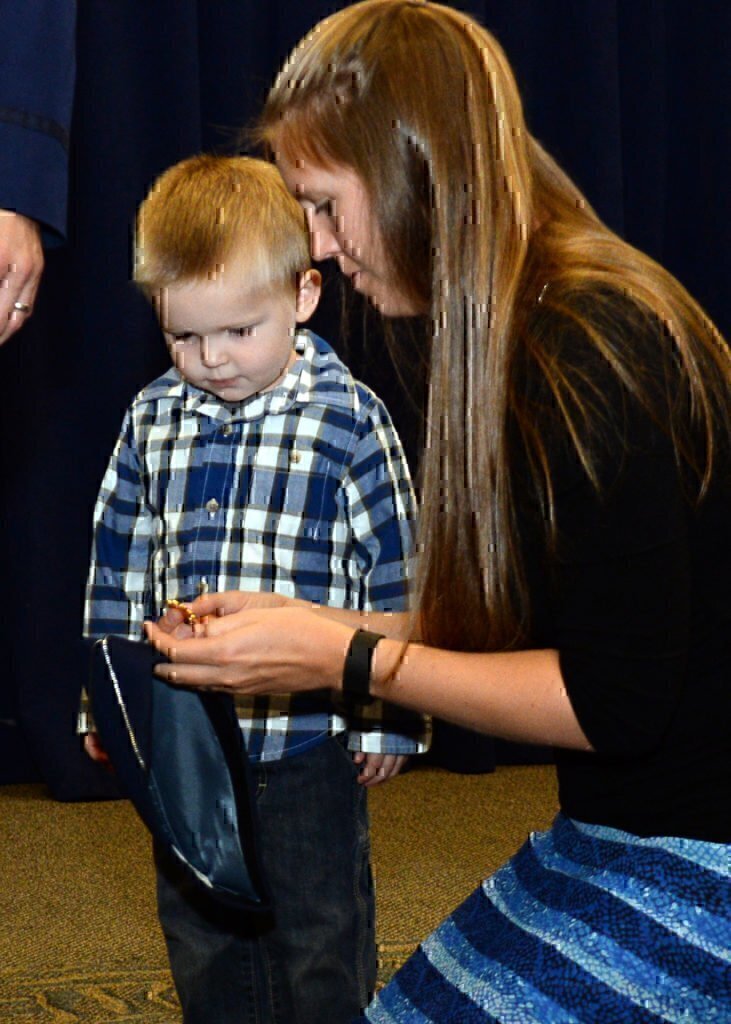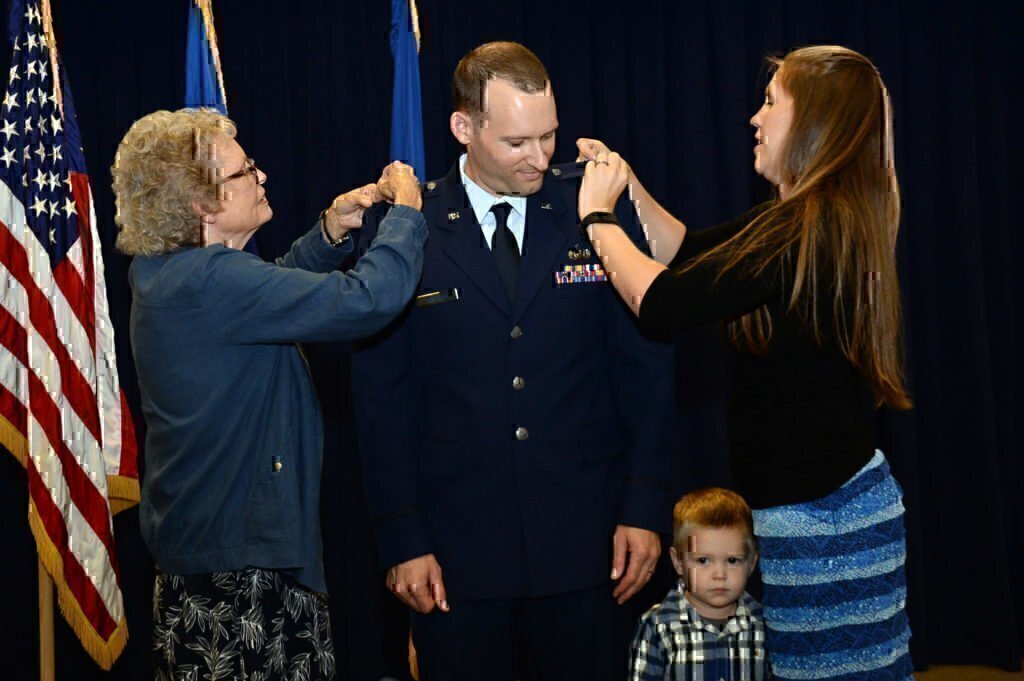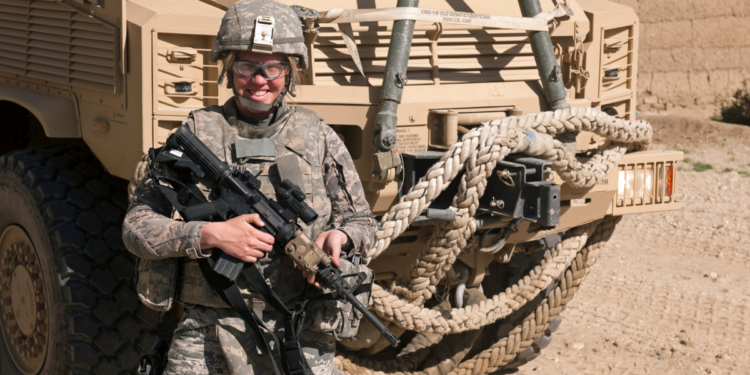By Amanda Huffman, Air Force Veteran and Air Force Spouse
When, at a ceremony or event, an emcee asks that all active military, veterans, and spouses stand together to be recognized, there is not distinction between the groups.
They all stand. If the woman is a service member or veteran, they know that when everyone stands together the assumption will be they are a military spouse. And what about military spouses? How does this make them feel? They don’t quite fit into the category of service member since they are a spouse. Although they appreciate being recognized for their sacrifice, it just doesn’t feel quite right.
Grouped Together
Situations like this especially aggravate an already existing complicated relationship between female service members and female military spouses. Women who serve in the military are constantly overlooked and their service is devalued. They often have to defend their service to the men who they either serve with or men who never served at all. Grouping their service with the service of non-veterans is very disingenuous.
Military spouses appreciate being recognized for the work they do to support the military because it is often an unseen and thankless job. But when everyone is pushed into one category, military spouses find themselves feeling awkward or uncomfortable. The very group they are trying to recognize doesn’t feel supported or appreciated.
Instead, they still feel like outsiders.
But Treated Differently

As both a veteran and a military spouse, I am in a unique position to see how military spouses and service members are treated in similar situations. Military spouses are classified as dependents, and are often treated just like the title sounds. And while some rules are made to protect the military and the member, they often make life a lot harder to be a military spouse.
A basic task like getting an identification card renewed or having repairs done to your home when you live on base require the service member. In the civilian world, a spouse is not dependent on their husband or wife to get basic tasks done. But the same cannot be said for military spouses. When I was in the military, I was treated with respect and always had great customer service.
As a military spouse, if I go on base to get help without my husband, I have found myself leaving in tears, treated unprofessionally and feeling like no one even cares. While military spouses don’t hold rank, they should be treated with respect.
Instead of support for spouses, there seems to be an unwritten rule where people can say negative things about military spouses, but if you say anything negative about a service member you are being disrespectful. Even military spouses who are just trying to engage in conversation with female service members may feel the need to tread lightly based on past experiences when stating their opinion ended up in a situation where they were humiliated.
And Then There is the “I Serve Too” Issue

Military spouses and service members use the same words to describe different things or don’t understand the other side’s experience. When military spouses say, “I serve too,” this can ruffle all kinds of feathers on both sides. For the military service member, the word service is tied to signing up to join the military and being willing to give the ultimate sacrifice.
While military spouses don’t serve the military in that function that doesn’t mean they don’t serve the military. Military spouses make countless sacrifices to support their service member. Maybe they gave up their career to follow their service member to the next assignment. Maybe they are the one who constantly has to take time off work or bend their schedule to accommodate the deployments, training and endless temporary duty assignments. Being a military spouse is often a lonely, hard and thankless job.
Understanding Our Stories
The best way to bridge the gap between military spouses and service women is by getting to know the other’s story. Until you actually meet and get to know a military spouse the only thing you know are the stereotypes. And until you actually meet and get to know a female service member all you know are the stereotypes. Stereotypes that are not good. Stereotypes that are often expanded stories or perceived truths that are rarely factual.
Military spouses are not lazy, attempting to get a free ride. Military spouses are strong, determined and are willing to bend over backwards to make military life work while taking care of their family. Many military spouses are working in careers that don’t meet their qualifications, but they have a hard time finding and keeping a job with all the demands of the military. Female service members are not sluts, using pregnancy as a means to get out of military obligations, or fooling around with married service members. Female service members are strong, determined and work hard to make it to the rank they have obtained.

They are professionals. And, if they stay in after marriage and kids, they have to make countless sacrifices while trying to find the balance of keeping a career and raising a family.
How many stories do you know about the women who have served our country? Or how many military spouses do you know and can talk to about their experience? The only way we can close the divide is to listen to the other side.
Want to share your story or thoughts on this topic or other important topics facing the military community? Email us at [email protected].




